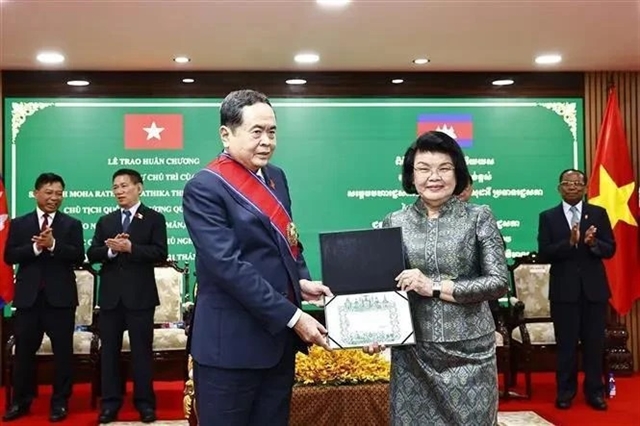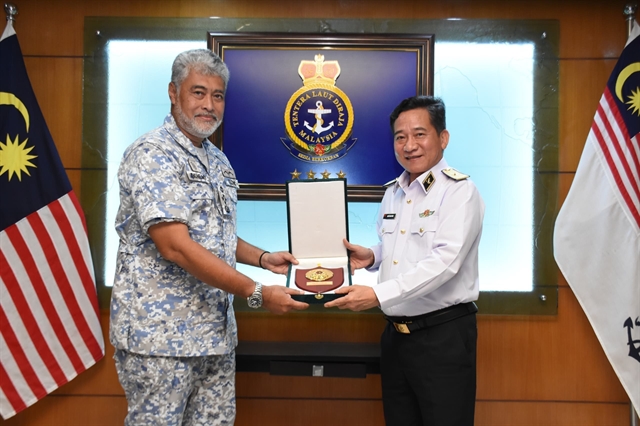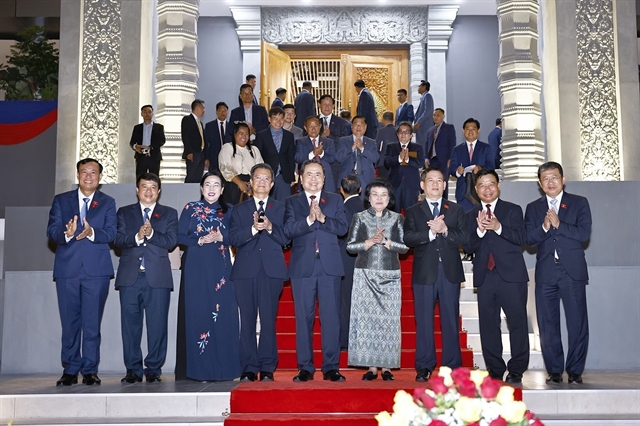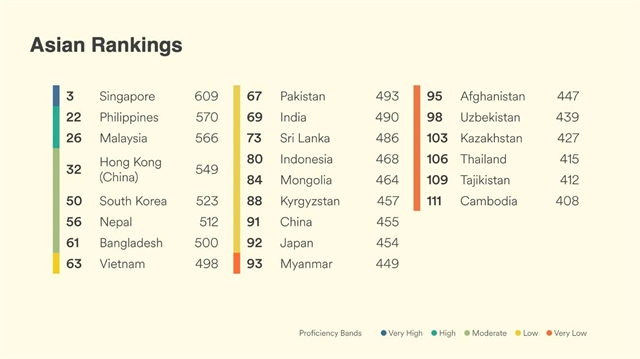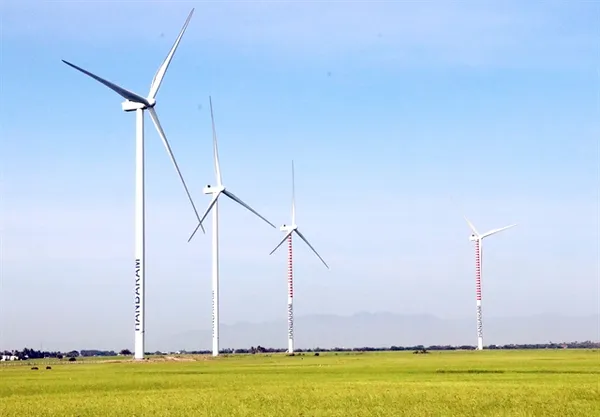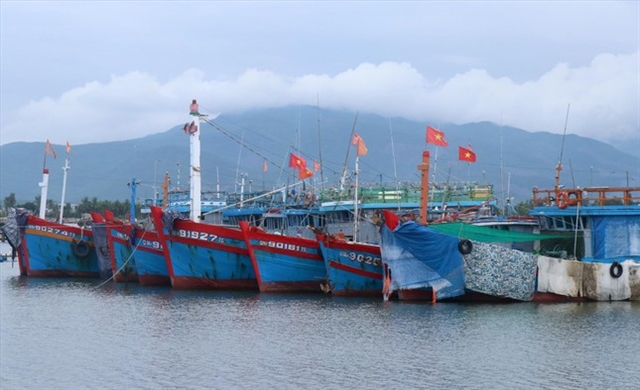 Economy
Economy
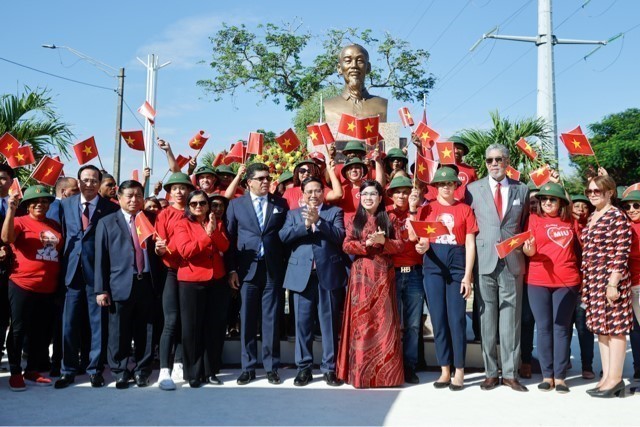
Việt Nam, immersed in the positive socio-economic achievements of 2017, started off 2018 on a good omen.
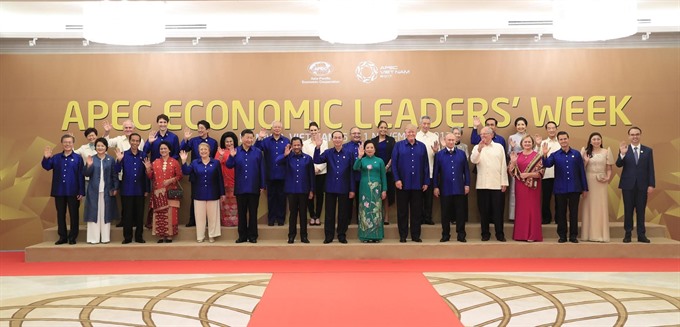 |
| Việt Nam successfully hosted the Asia-Pacific Economic Co-operation (APEC) Summit which took place in November 6-11 in the central city of Đà Nẵng. – VNA/VNS Photo |
Việt Nam, immersed in the positive socio-economic achievements of 2017, started off 2018 on a good omen.
This was the determination of the nation’s Under U23 national football team to carry on regardless during the final of the 2018 AFC Championship, played in a blizzard in China. Thousands of Vietnamese came and watched the event live though no one is fond a driving snowstorm.
While the Vietnamese boys lost, the gutsy players did not flinch. The U23s had been considered a weak team in the region and were the underdogs. But they still managed to beat much stronger teams to get to the final. Although they were not crowned, their journey in the tournament surprised not only Vietnamese, but made other countries re-evaluate the strength of our football.
At a Government meeting last week, Prime Minister Nguyễn Xuân Phúc said the success of the U23 team demonstrated that strong determination, discipline and solidarity should also be used in the administration of the Government, ministries and localities.
This story of the U23s reminds me the success of the Asia-Pacific Economic Co-operation (APEC) Summit in Việt Nam in 2017 where the country was the host. The meeting was about regional integration, trade liberalisation and initiatives in favour of business. Việt Nam hosted APEC 2017 at a challenging time. When it agreed to be a host, Brexit was not yet on the horizon – and the result of the US presidential election was not known. Furthermore, Việt Nam was not prepared for the possibility of emerging protectionism.
But the forum was considered a big success in terms of organisation and topics by all participating members, including the most important economies, such as the United States, China and Russia. This event elevated Việt Nam’s political posture in the world.
Its success came from strong political will and confidence by a country that wants to integrate deeply into the world through well-organised planning and diplomacy.
The longing to change and develop as well as determination to act is another successful lesson from Việt Nam’s economic reform in Spring 1989. Việt Nam adopted the Đổi mới (renewal) in 1986, but radical and comprehensive reform was only implemented in March 1989 with the aim of stabilising and opening the economy and enhancing freedom of choice for economic units.
The reform package included price liberalisation, large devaluation and unification of the exchange rate, increases in interest rates to positive levels in real terms, substantial reduction in subsidies to the State-owned enterprise sector, agricultural reforms, encouragement of the domestic private sector, foreign direct investment, removal of domestic trade barriers and creation of a more open economy.
Renewal in 1986 and market-oriented reform in 1989 marked a turning point in the history of Việt Nam’s economic development. Việt Nam escaped from the crisis in the mid-1980s and the face of Việt Nam’s economy and society has changed significantly.
At that time, we did not have a detailed understanding of the market economy. Experts and economist were sent overseas for training. But Việt Nam still bravely embarked on the economic reforms and made them successful.
The reform process, although uneven because of negative development of industrial production, brought a lot of positive results. Inflation was under control and has been kept at a low rate since 1989. The country had low unemployment rate despite the massive discharge of military personnel. From 1990 to 1997, the GDP growth rate was maintained at around 8 per cent a year on average.
The GDP growth rate, however, went down between 1997 and 1999, partly because of the Asian financial crisis, and partly because of the dissipation of reform effects. Since 2000, the economy has regained its rather high growth rate at 7 per cent and more per annum.
The fruitful reform has again shown the country’s great political will with the resolution of leaders with the desire to pull 60 to 70 per cent of the country out of poverty and implement industrialisation and modernisation.
The ambition of a poor country to turn into a “dragon” economy was also reflected in the integration of Việt Nam into the Association of Southeast Asian Nations (ASEAN) in 1995.
This important decision was driven by the urgent need for a favourable international environment for domestic economic development, for lifting embargoes on its economy and normalising relations with the United States after the collapse of the socialist system in the Soviet Union and Eastern Europe.
From the objective of having “more friends and fewer enemies” to the foreign policy as “being a friend of all countries”, and in the absence of thorough understanding of the organisation’s working procedures, the decision to join ASEAN reflected the strong political will of the Government to further commit itself in the region.
According to former Deputy Prime Minister Vũ Khoan, Việt Nam did not understand the ASEAN Free Trade Area (AFTA) at that time, but the country still dared to join and play. And in fact, Việt Nam has performed relatively well, turning itself from a new player into an active, responsible member with a substantial contribution to the integration of the region. More and more people are interested in a Việt Nam that is reaching out to the world.
Success in many areas in the past has shown us the need for aspiration for success. “Dare to play” and “play with confidence”. Keeping these factors well in line will bring success and prosperity to the whole society.
* Võ Trí Thành is a senior economist at the Central Institute for Economic Management (CIEM) and a member of the National Financial and Monetary Policy Advisory Council. A doctorate holder in economics from the Australian National University, Thành mainly undertakes research and provides consultation on issues related to macroeconomic policies, trade liberalisation and international economic integration. Other areas of interest include institutional reforms and financial systems.
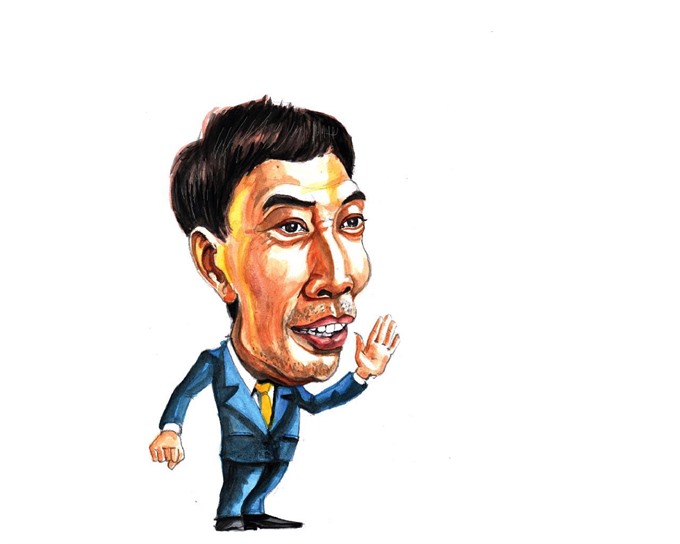 |

